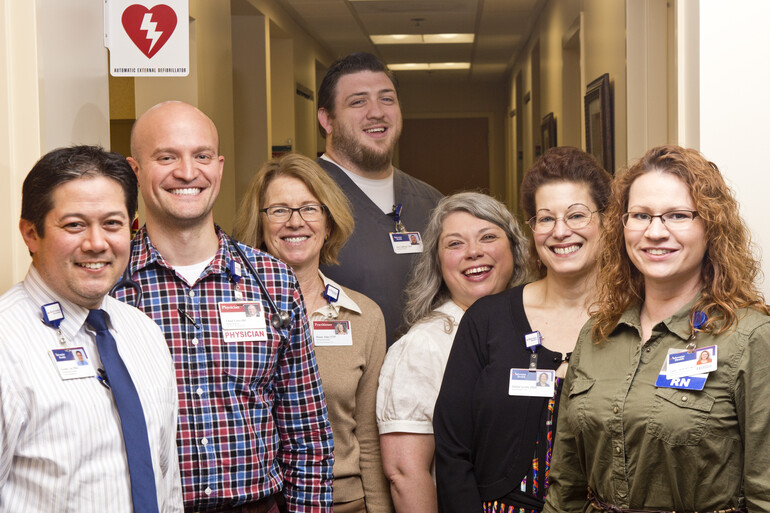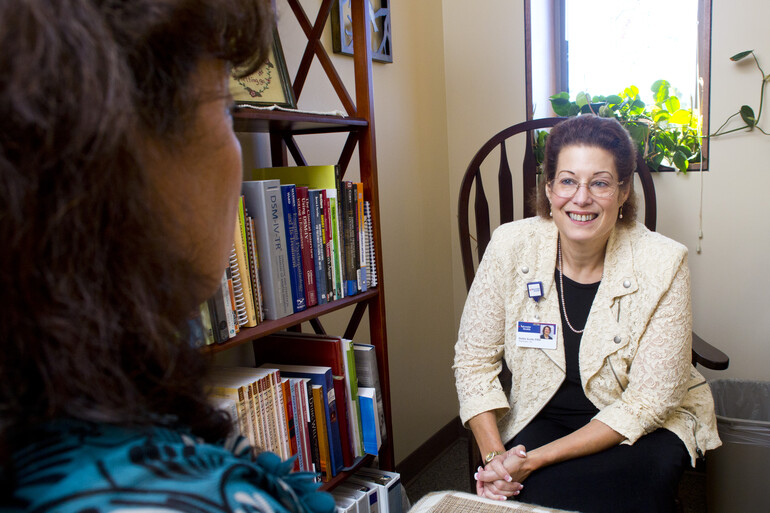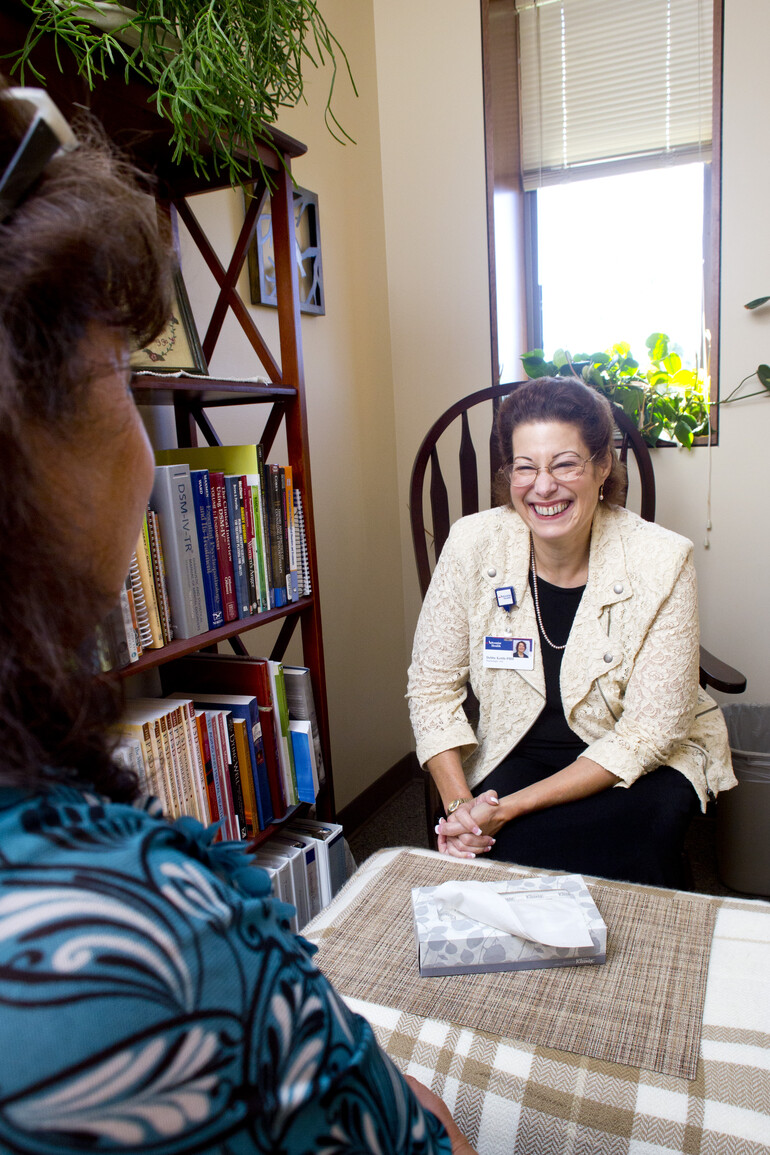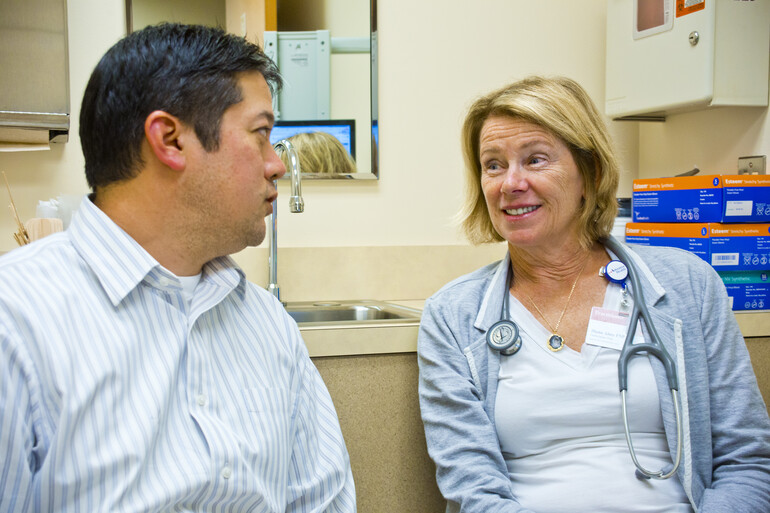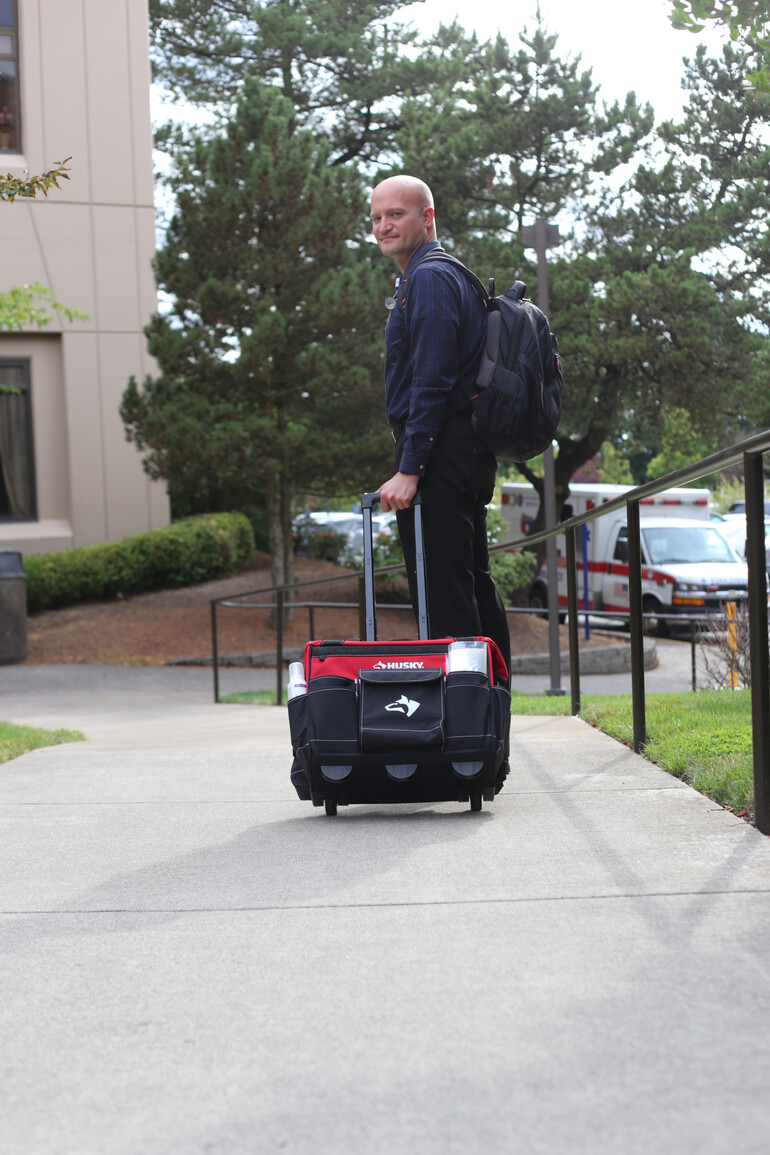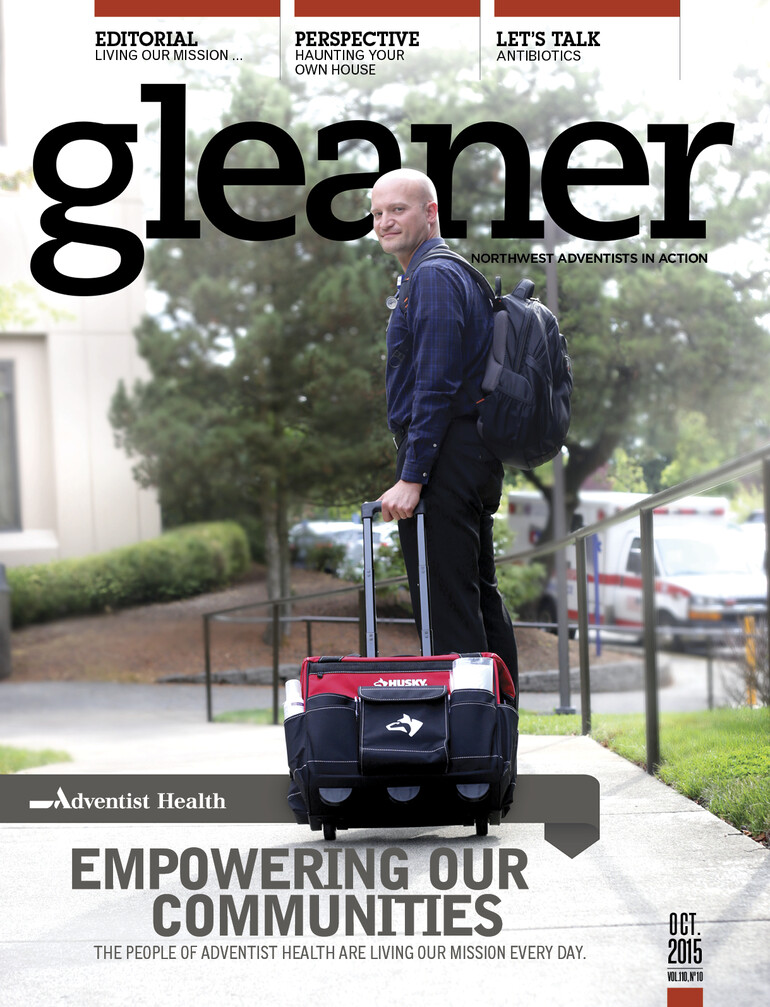Sue,* an elderly woman with anxiety, shortness of breath and chronic abdominal pain had visited the emergency room on 24 separate occasions over the course of one year. Because of her severe situation, Sue qualified for the Resilience Center at Adventist Health in Portland, Oregon, a clinic designed especially for at-risk patients. Through months of coaching, education and support from physician Chad Lowe and the Resilience Center team, Sue and her husband were able to learn how to manage her condition without relying solely on visits to the ER. The team also coordinated access to the treatment, medication and follow-through she needed. Sue hasn’t been to the ER since March.
“We celebrate victories like this over and over in our clinic,” says Alina Tudor, care manager at the Resilience Center. “They are the result of incredible teamwork and like-minded collaboration.”
Sue is one of more than 220 patients seen by the Resilience Center team since the first patient arrived in February 2014. With a goal to reach at least 500 patients, the clinic was developed to be a patient-centered medical home specifically for high-risk patients such as Sue. The team provides patients with a more intensive level of care than is available in a typical primary care setting.
“We try to surround the patient with resources,” says Lowe, who has been working at the Resilience Center since it opened. “That means we have to think outside the box to find methods of care that a traditional center can’t or won’t do. It also means we’re an active part of their lives throughout their journey to better health.”
The Resilience Center’s goal is to look at the big picture — whole-person health — in order to heal. This happens when all the elements of patient care come together with a full understanding of the patient situation, says Lowe.
“We opened the Resilience Center to ensure that patients receive the right care, in the right setting, at the right time,” says Tudor. “The team uses a holistic approach to each individual’s care as we seek to empower and support them in their journey to better health.”
Dorane Brower, Integrated Physician and Health Plan Services vice president, says that the development of the Resilience Center was worth the risk taken in developing it in the first place.
“In a way, it may seem counterintuitive because we are keeping patients out of the emergency department and hospital, which provide revenue to our organization,” says Brower. “But when you look at it through the filter of our mission and through the eyes of our patients, it becomes the only thing we can do. Our mission calls us to do exactly this.”
Lowe is the medical director at the clinic but works with an in-house team of nurse care managers, medical assistants, a dietician, a pharmacist and a psychologist to provide multidisciplinary treatment for each individual. Patients who are referred to the Resilience Center have one or more chronic illnesses and usually require the attention of multiple caregivers working together — often providing education and on-call support for patients and their families. In Sue’s case, caregivers worked with her husband to provide insight into what his wife was going through and educated him about how he could help her at home.
“Our primary goal is to take care of each patient’s needs in the way that best fits them and their situation,” says Lowe. “It’s all about helping the patient in a way that’s personal and gives them the best experience.”
At the clinic, patients have access to whole-person care — mind, body and spirit. Debbe Kettle is the on-site psychologist. She has a master’s degree in divinity, which provides background not only for social issues but spiritual issues as well. She uses this knowledge on a daily basis, especially in her work with elderly patients and end-of-life counseling.
“Sometimes the most important thing we do in the clinic is just listen,” says Lowe. “It’s not always prescribing, doing tests and providing treatment. We have patients who have already had a lot of intervention and medication and have seen all kinds of specialists, but we’re able to make progress because we can spend time with them listening.”
While many primary care clinics schedule 15-minute appointments, Lowe’s patients are able to meet with him with plenty of time to address all their issues — in some cases, an hour or more if necessary. If they can’t make it into the clinic or have a complicated living situation, Lowe makes house visits.
“I always wanted to be a country doctor, doing home visits,” says Lowe. “Now I’m in an urban area, but I still get to meet people where they are — at home, in the hospital, at nursing homes or in the clinic — I love that about my job. It really helps with the continuity of care patients receive.”
Time and place are critical in Lowe’s line of work. One patient was brought to the attention of the Resilience Center because he had missed several appointments with his own primary care physician. The team was given his address and did a home visit, only to discover that the man was living in a barn without any resources or access to care. With the help of social services and financial counseling, he was transitioned into a safer and healthier living environment.
“This is one way we’re encompassing the Adventist Health mission,” says Lowe. “We’re doing what Jesus did — meeting people where they are and helping them to move forward in their lives and in their health.”
*Name changed to protect patient privacy.





